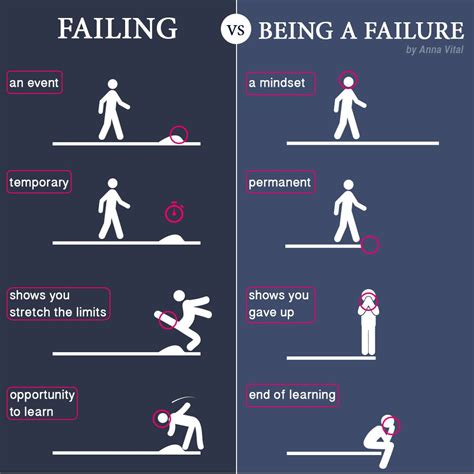Startup success in the gaming tech industry is a coveted achievement, but it's also a challenging and elusive goal. With the gaming market projected to reach $190 billion by 2025, the competition is fierce, and only a handful of startups manage to stand out from the crowd. So, what does it take for a gaming tech startup to succeed?
First and foremost, a successful gaming tech startup needs to have a deep understanding of the gaming industry and its trends. This includes knowledge of the latest technologies, such as cloud gaming, artificial intelligence, and virtual reality, as well as the evolving preferences of gamers. By staying on top of these trends, startups can identify opportunities to innovate and create new experiences that meet the changing needs of the market.
Key Factors Contributing to Startup Success in Gaming Tech
Several key factors contribute to the success of gaming tech startups. These include:
1. Strong Team and Leadership
A successful gaming tech startup needs a strong team with a clear vision and leadership. This includes experienced developers, designers, and industry experts who can drive innovation and growth. A good leader should be able to inspire and motivate the team, make strategic decisions, and build a positive company culture.

2. Innovative Technology and Solutions
Gaming tech startups need to develop innovative technologies and solutions that solve real problems or create new experiences for gamers. This can include new game engines, AI-powered tools, or virtual reality platforms. By developing cutting-edge technology, startups can differentiate themselves from competitors and attract attention from investors, partners, and customers.
3. Robust Business Model and Revenue Streams
A successful gaming tech startup needs a robust business model and multiple revenue streams. This can include subscription-based services, advertising, sponsorships, and in-game purchases. By diversifying revenue streams, startups can reduce their dependence on a single source of income and increase their chances of long-term success.
4. Strong Partnerships and Networking
Building strong partnerships and networking with industry leaders, investors, and other startups is crucial for gaming tech startups. By building a strong network, startups can access new markets, technologies, and talent, and stay ahead of the competition.
5. Adaptability and Agility
The gaming tech industry is highly competitive and constantly evolving. To succeed, startups need to be adaptable and agile, able to pivot quickly in response to changing market trends and customer needs. This requires a culture of innovation, experimentation, and continuous learning.
Examples of Successful Gaming Tech Startups
Several gaming tech startups have achieved significant success in recent years. These include:
1. Unity Technologies
Unity Technologies is a leading game engine developer that has become a household name in the gaming industry. Founded in 2004, Unity has grown to become one of the largest and most successful gaming tech startups in the world, with over 25 million registered developers and a valuation of over $6 billion.

2. Discord
Discord is a popular communication platform for gamers that has grown to become one of the largest and most successful gaming tech startups in the world. Founded in 2015, Discord has over 150 million active users and a valuation of over $15 billion.
3. Epic Games
Epic Games is a leading game developer and publisher that has achieved significant success in recent years. Founded in 1991, Epic Games has developed several successful games, including Fortnite and Unreal Tournament, and has a valuation of over $15 billion.
Challenges Faced by Gaming Tech Startups
Gaming tech startups face several challenges that can hinder their success. These include:
1. High Competition
The gaming tech industry is highly competitive, with thousands of startups and established companies vying for attention and market share. To succeed, startups need to differentiate themselves from competitors and offer unique solutions or experiences.
2. Rapidly Evolving Technology
The gaming tech industry is constantly evolving, with new technologies and trends emerging every year. To stay ahead of the competition, startups need to stay on top of these trends and adapt quickly to changing market conditions.
3. Limited Funding
Gaming tech startups often require significant funding to develop and launch their products. However, securing funding can be challenging, especially for early-stage startups with unproven products or business models.
4. Regulatory Challenges
Gaming tech startups may face regulatory challenges, such as data protection and privacy laws, that can impact their business operations and revenue streams. To succeed, startups need to stay on top of these regulations and adapt their business models accordingly.
Conclusion
Startup success in the gaming tech industry requires a combination of innovative technology, strong leadership, robust business models, and adaptability. By understanding the key factors that contribute to success and learning from examples of successful gaming tech startups, entrepreneurs and developers can increase their chances of success in this highly competitive and rapidly evolving industry.






What are the key factors that contribute to startup success in the gaming tech industry?
+The key factors that contribute to startup success in the gaming tech industry include strong leadership, innovative technology, robust business models, adaptability, and strong partnerships and networking.
What are some examples of successful gaming tech startups?
+Some examples of successful gaming tech startups include Unity Technologies, Discord, and Epic Games.
What are some challenges faced by gaming tech startups?
+Gaming tech startups face challenges such as high competition, rapidly evolving technology, limited funding, and regulatory challenges.
